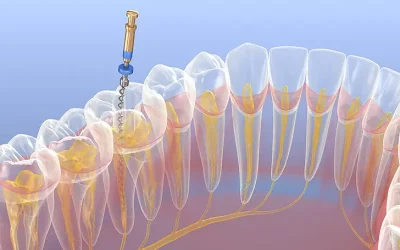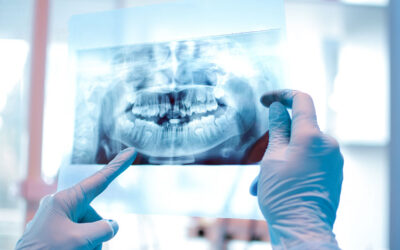Regular dental checkups are essential for maintaining good oral health and preventing potential issues from escalating. In this comprehensive guide, we’ll delve into the consequences of neglecting your dental visits and the impact it can have on your overall oral health. From plaque buildup and tooth decay to gum disease and bad breath, we’ll explore the potential repercussions of skipping regular dental checkups.
We’ll discuss the recommended frequency for dental visits and what to expect during a typical dental checkup. We’ll provide practical tips for maintaining good oral health between visits, including proper brushing and flossing techniques, the significance of a balanced diet, the benefits of using mouthwash, and the importance of avoiding harmful habits.
Join us as we uncover the significance of regular dental checkups and the steps you can take to ensure optimal oral health.
Why Is Regular Dental Checkup Important?
Regular dental checkups are crucial for maintaining optimal dental health and ensuring proper oral hygiene. These check-ups, conducted at scheduled intervals through dental appointments, play a significant role in preventive care and preserving overall oral health.
They allow dentists to detect and address any potential issues before they escalate, such as cavities, gum disease, or oral cancer. Regular check-ups enable professional cleaning to remove plaque build-up, preventing conditions like tooth decay and bad breath. By staying proactive with dental appointments, individuals can minimize the risk of costly treatments and maintain a healthy, radiant smile for years to come.
What Are The Consequences Of Not Visiting Your Dentist Regularly?
Neglecting regular dental visits can lead to various adverse consequences, including the development of dental problems, oral diseases, and potential complications such as decay, infections, and discomfort.
Irregular dental check-ups may allow underlying issues to progress unnoticed, resulting in more extensive and expensive treatments in the future. Untreated decay can lead to severe cavities and tooth loss, while untreated infections can spread and affect neighbouring teeth and gums. The resulting pain and discomfort can significantly impact one’s daily life, affecting eating, speaking, and overall well-being.
Neglecting dental care also increases the risk of gum disease, which has been linked to various systemic health issues, including heart disease and diabetes.
Plaque Buildup
One of the consequences of not visiting your dentist regularly is the accumulation of plaque, which can lead to dental problems that require extensive dental cleaning and thorough oral examination.
Plaque is a sticky film of bacteria that forms on the teeth and can harden into tartar if not removed regularly through dental cleaning. This buildup can result in tooth decay, gum disease, and bad breath. Without regular oral examinations, potential dental issues such as cavities, gingivitis, and periodontitis may go unnoticed, leading to more complex and costly treatments in the future. Dental cleaning and oral examinations play a crucial role in preventing and addressing these problems, promoting overall oral health and well-being.
Tooth Decay
The risk of tooth decay significantly increases with irregular dental visits, necessitating extensive dental treatments to address the resultant issues that arise from neglecting dental care.
Neglecting regular dental care can lead to a host of oral health problems, including cavities, gum disease, and eventual tooth loss. Without timely intervention, these issues can escalate, causing discomfort and affecting overall well-being. Dental treatments such as fillings, root canals, and extractions may become necessary to alleviate the effects of tooth decay. Neglecting regular dental care can have broader health implications, as studies have linked poor oral health to conditions like heart disease and diabetes. It is clear that regular dental visits are crucial for maintaining not only oral health but also overall well-being.
Gum Disease
Failure to attend regular dental check-ups increases the vulnerability to gum disease, posing significant dental health risks and underscoring the importance of maintaining proper dental hygiene and care.
This heightened risk of gum disease can lead to inflammation, bleeding, and even tooth loss if left unchecked. Poor dental hygiene may also contribute to other health issues like heart disease and diabetes.
Regular dental visits are essential for detecting and addressing any early signs of gum disease, as well as receiving professional cleanings to remove plaque and tartar buildup, which can significantly lower the risk of developing gum disease.
Taking proactive steps to prioritize dental health can have far-reaching benefits for overall well-being.
Bad Breath
Irregular dental check-ups can contribute to the development of bad breath, highlighting the potential dental consequences and underscoring the effects of dental neglect on overall oral care.
This underscores the importance of regular dental visits in maintaining good oral health. When dental issues go unnoticed due to infrequent check-ups, the risk of developing periodontal disease, cavities, and plaque buildup increases. These conditions can lead to persistent bad breath, known as halitosis. Neglecting dental care can result in more severe oral health problems, such as gum disease and tooth loss, ultimately impacting one’s overall well-being. Therefore, prioritizing regular dental visits is crucial for preventing these adverse effects.
Tooth Loss
A significant consequence of not visiting the dentist regularly is the increased risk of tooth loss, often accompanied by potential dental complications, infections, and associated pain.
Neglecting regular dental check-ups can lead to unnoticed dental issues such as decay, gum disease, and abscesses, which can ultimately result in the loss of teeth. Without professional intervention, these complications can progress, causing severe pain and discomfort. Untreated tooth infections may spread, leading to systemic health problems. It’s crucial to understand the importance of preventive dental care in avoiding these potential risks and maintaining optimal oral health.
How Often Should You Visit Your Dentist?
Determining the frequency of dental visits depends on general guidelines and individual factors, which can provide valuable dental tips, advice, and insights into effective dental maintenance.
General guidelines recommend dental visits every six months for routine check-ups and cleanings, but individual factors like oral health, age, and medical history should also be considered. For those with gum disease or a history of dental issues, more frequent visits may be necessary to maintain oral health. Individuals with chronic conditions like diabetes or a weakened immune system may require more frequent dental care to prevent complications. Consulting with a dentist can offer personalized recommendations for optimal dental visit frequency and maintenance.
General Guidelines
General guidelines for dental visit frequency encompass established parameters for ensuring optimal dental health, addressing the need for specific dental procedures and the prevention of potential dental problems and complications.
These guidelines typically recommend that individuals visit their dentist at least once every six months for a routine check-up and cleaning. For those with specific dental issues or undergoing certain treatments, more frequent visits may be necessary. Regular dental visits not only aid in the early detection of dental problems but also help in preventing more serious complications down the line. Dental procedures such as fillings, crowns, root canals, and regular oral hygiene maintenance play a crucial role in maintaining healthy teeth and gums.
Individual Factors
Various individual factors influence the optimal frequency of dental visits, taking into account specific dental issues, potential consequences, and the overall preservation of dental health.
These factors may include personal oral hygiene habits, genetic predispositions to dental problems, dietary choices, and access to dental care.
For instance, individuals with a family history of gum disease may require more frequent visits to monitor and prevent its progression.
Ignoring regular dental check-ups can lead to untreated cavities, gum disease, and even systemic health issues such as heart disease.
Therefore, maintaining proper dental health through regular visits and preventative care is essential for overall well-being.
What Happens During A Dental Checkup?
A dental checkup involves essential components such as dental examination, potential dental treatments, and the assessment of existing dental issues and associated complications.
During a dental examination, the dentist thoroughly assesses the overall oral health, including checking for cavities, gum disease, and potential signs of oral cancer. Based on the findings, potential dental treatments may include professional cleaning, fillings, crowns, or root canals to address any dental issues.
The assessment of existing dental issues and associated complications is crucial for early detection and prevention of oral health problems, ensuring optimal dental care and overall well-being.
Cleaning And Polishing
Dental checkups involve the essential aspects of cleaning and polishing, which facilitate effective dental procedures and provide valuable oral care tips to maintain dental health.
Regular cleaning and polishing during dental checkups play a crucial role in preventing the buildup of plaque and tartar, reducing the risk of cavities and gum disease. These procedures ensure that any underlying dental issues are addressed promptly, allowing for early intervention and prevention of more serious problems.
Maintaining optimal oral hygiene through daily brushing, flossing, and using mouthwash is key to prolonging the effects of professional cleaning and polishing, keeping your teeth and gums healthy between checkups.
Examination
During a dental checkup, a thorough examination is conducted to assess oral health, identify existing dental issues, and address the effects of potential dental neglect.
The dental examination includes a comprehensive evaluation of the teeth, gums, and oral tissues to detect any signs of decay, gum disease, or oral abnormalities. This process involves X-rays to uncover hidden problems and assess the overall dental structure. The dentist carefully inspects for signs of dental neglect, such as poor oral hygiene habits, which can lead to serious consequences if left unaddressed. Through this meticulous examination, any underlying dental issues can be identified early, preventing potential complications and preserving oral health.
X-rays
X-rays are a fundamental component of dental checkups, enabling the identification of potential dental problems, complications, and infections that may not be immediately visible during the examination.
These images provide a detailed view of the teeth and surrounding structures, allowing dentists to detect issues such as cavities, gum disease, impacted teeth, and abscesses. They also aid in diagnosing bone loss, tumors, and other abnormalities that may not be apparent through a visual examination alone. By uncovering these hidden problems early on, X-rays help prevent potential complications and facilitate timely treatment, ultimately contributing to better oral health and overall well-being.
How To Maintain Good Oral Health Between Dental Visits?
Maintaining good oral health between dental visits involves adhering to dental advice, implementing valuable dental tips, and mitigating potential dental consequences through proactive oral care.
These strategies are essential for preventing oral health problems and ensuring the longevity of your teeth and gums. By following recommended brushing and flossing techniques, as well as using fluoride toothpaste and mouthwash, individuals can effectively combat plaque and bacteria buildup. Maintaining a balanced diet and limiting sugary and acidic foods can significantly contribute to oral health. Regular dental check-ups and cleanings also play a crucial role in preventing cavities, gum disease, and other dental issues.
Brushing And Flossing
Regular brushing and flossing form the cornerstone of effective dental hygiene and care, playing a pivotal role in maintaining optimal oral health between dental visits. They help in removing plaque and food particles, preventing the buildup of bacteria and reducing the risk of gum disease and tooth decay. Regular brushing and flossing promote fresh breath, contribute to a brighter smile, and support overall health. By integrating these habits into a daily routine, individuals can significantly reduce the need for extensive dental treatments and ensure long-term dental wellness.
Eating A Balanced Diet
Adopting a balanced diet contributes significantly to oral health and dental maintenance, serving as a valuable dental tip for maintaining optimal dental well-being between visits.
It’s essential to consume a variety of nutrient-rich foods, including fruits, vegetables, whole grains, lean proteins, and dairy products, as they provide essential vitamins and minerals vital for gum health and preventing oral diseases. Limiting sugary and acidic foods and beverages helps in reducing the risk of tooth decay and enamel erosion. A balanced diet also supports a healthy immune system, which is crucial in fighting oral infections and promoting overall oral well-being.
Using Mouthwash
The utilization of mouthwash forms an integral part of effective oral care and dental hygiene, offering valuable dental tips for maintaining optimal oral health between dental visits.
By incorporating mouthwash into one’s daily oral care routine, individuals can effectively combat plaque and gingivitis, freshen their breath, and reduce the risk of cavities. Mouthwash helps reach areas where brushing and flossing might miss, promoting an overall cleaner mouth. It can aid in reducing oral bacteria and preventing gum disease, serving as a crucial element in the pursuit of excellent oral hygiene and overall health.
Avoiding Harmful Habits
It is crucial to understand the importance of avoiding harmful habits in mitigating potential dental consequences and averting associated dental issues.
These harmful habits, such as smoking, excessive sugary intake, and poor oral hygiene, can lead to a multitude of adverse effects on the teeth and gums. By recognizing and changing these habits, individuals can significantly reduce the risk of tooth decay, gum disease, and other oral health problems.
Seeking valuable dental advice on maintaining good oral hygiene practices and making healthy lifestyle choices is pivotal in preserving oral health between regular dental visits, ensuring a brighter and healthier smile in the long run.




